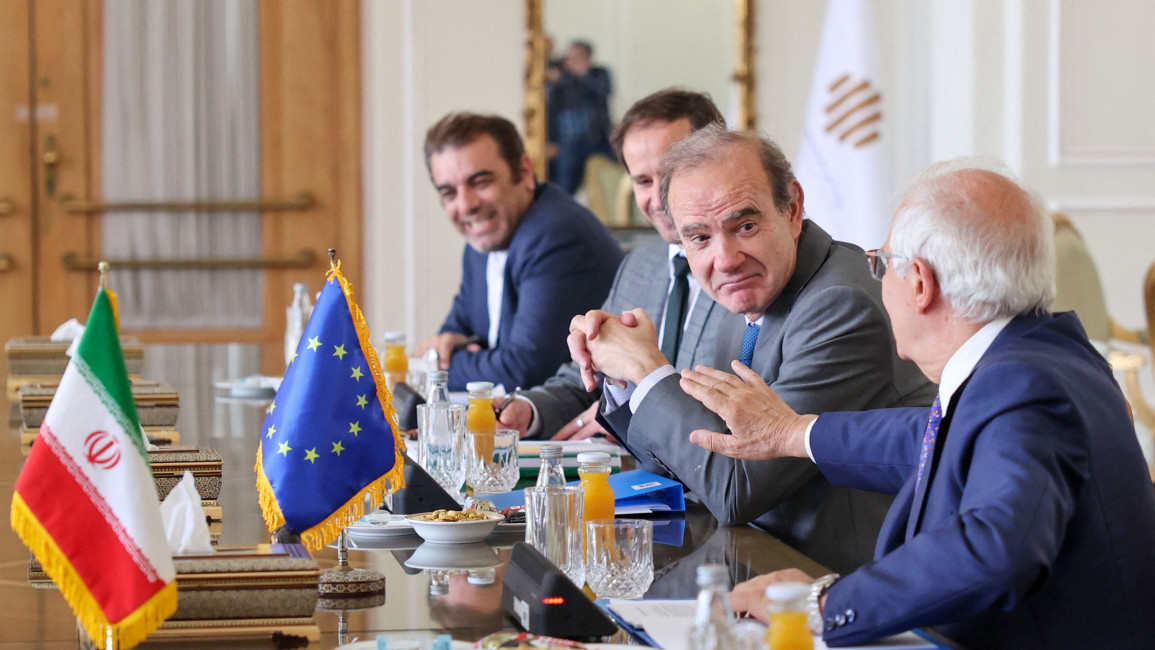Flexibility on both sides brings Iran nuclear deal closer
Flexibility on the parts of the US and Iran appears to be bringing both parties closer to nuclear deal.
On Tuesday, it was reported that Iran had dropped a previous demand that the International Atomic Energy Agency close its investigation of undeclared nuclear material at Iranian sites in 2019. It has also been reported that Iran will no longer require that the Islamic Revolutionary Guard Corps be delisted a US-designated terrorist group.
Meanwhile, the US has indicated that it will give US companies a grace period of at least a year and a half to leave the country should the US again back out of the deal.
"Both sides have shown flexibility. The Iranians have dropped demands and the US has given more assurances," Trita Parsi, executive vice president of the Quincy Institute, told The New Arab. "The flexibility might not be symmetric, and the Iranians might be giving more. But when the US gives nothing, there's no breakthrough."
The US and Iran have since April 2021 been indirectly renegotiating the 2015 Joint Comprehensive Plan of Action, which the US abandoned under former President Donald Trump. The new deal would have a long list of changed details. However, the spirit of the deal – sanctions relief for Iran in exchange for its agreement to not acquire the capability for nuclear weapons – will remain for both sides.
"It's still too early to say on either side if it's a good or bad deal," James Levine, associate professor of politics and international relations at Mount Allison University, told TNA. "A lot of details are emerging. We know a lot more now than we did a week ago."
Levine notes that even though the US might appear to be getting a better deal than Iran, there are many in the US as well as allies in the region – mainly Israel, Saudi Arabia and the UAE – who will not want the deal not matter how good the terms for the US due to Iran’s missiles and regional proxies, which are not part of the deal.


![The White House Correspondents' dinner is seeing renewed scrutiny amid Israel's war in Gaza. [Brooke Anderson/The New Arab]](/sites/default/files/styles/image_212x120/public/2024-04/IMG_5497.jpg?h=71976bb4&itok=TX4OspBM)